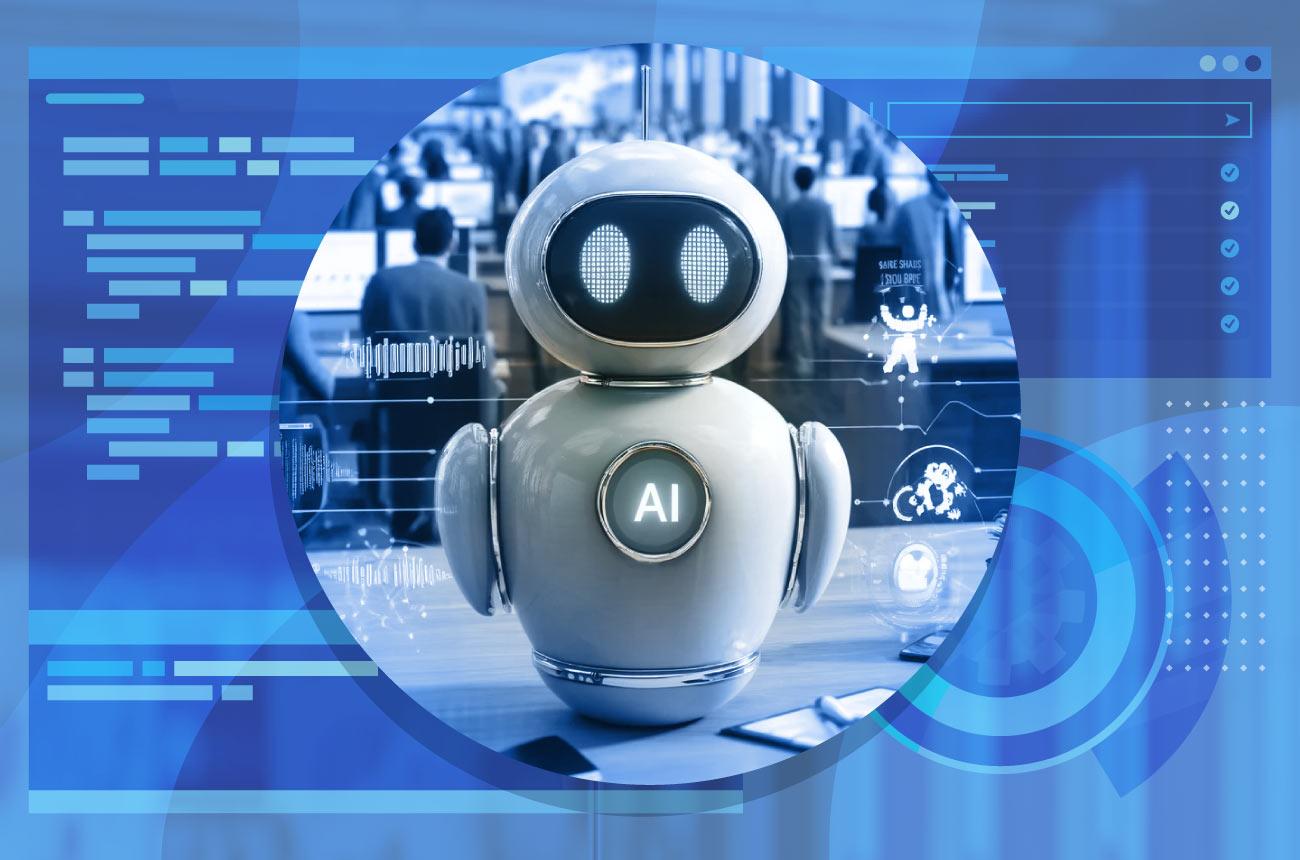
In an era defined by rapid technological advancement, artificial intelligence (AI) has transitioned from a futuristic concept to a pivotal element in the modern business landscape. Among the most transformative innovations are AI agents—intelligent software entities capable of performing tasks with minimal human intervention. From automating routine operations to enhancing decision-making processes, these agents offer a wealth of opportunities for organizations willing to embrace their potential. However, mastering the integration and management of AI agents requires more than just understanding their functionality; it necessitates a complete strategy that aligns with business goals, employee dynamics, and ethical considerations. In this article, we will explore the intricate world of AI agents, providing a thorough roadmap for businesses seeking to harness their power effectively. Join us as we delve into the fundamental concepts, practical applications, and key strategies that will empower your organization to navigate the complexities of AI, unlocking new avenues for growth and innovation.
Table of Contents
- Understanding the Foundations of AI Agents for Business Success
- Key Strategies for Integrating AI Agents into Your Workflows
- Optimizing performance: Best Practices for Managing AI Agents
- Future Trends in AI Agents and Their Impact on Business Innovation
- Q&A
- In Conclusion

Understanding the Foundations of AI Agents for Business Success
In the digital age, understanding the core principles of AI agents is essential for businesses aiming to harness their potential. These intelligent systems can analyze vast amounts of data, allowing organizations to make informed decisions swiftly. At the foundation of AI agents lies machine learning, algorithmic processing, and natural language understanding, enabling them to interact meaningfully with users and adapt to varying business environments. By integrating AI agents, companies can enhance operational efficiency and provide personalized experiences to their customers.
A key to maximizing the benefits of AI agents is recognizing their multifaceted capabilities. Businesses can leverage these agents to automate repetitive tasks, analyze consumer behavior, and optimize workflows. Consider the following benefits of integrating AI agents:
- Data-Driven Insights: AI agents can dissect trends in real-time for strategic planning.
- Operational Efficiency: Automating mundane tasks frees up valuable employee time.
- Enhanced Customer Engagement: Tailored interactions improve customer satisfaction and loyalty.
To illustrate the potential impact of AI agents, here’s a brief overview of the different types of applications across industries:
| Industry | Application | Benefit |
|---|---|---|
| Retail | Personalized Recommendations | Increased sales through targeted marketing |
| Healthcare | Predictive Analytics | Better patient outcomes and resource management |
| Finance | Fraud Detection | Minimized risk and enhanced security |

Key Strategies for Integrating AI Agents into Your Workflows
Integrating AI agents into your workflows requires a meticulous approach to ensure harmony between human capabilities and machine efficiency. Start by identifying key areas within your organization where AI can provide the most value. This may include automating repetitive tasks, enhancing customer interactions, or analyzing data for strategic decisions. Engagement with stakeholders across departments is essential—gathering insights from those who will use the AI systems can help tailor solutions to their specific needs. Furthermore, establish a clear communication protocol to keep everyone informed about the AI integration process, fostering a culture of openness and collaboration.
Once objectives are set,consider developing a phased implementation plan. Begin with a pilot project focusing on a single function, enabling your team to test AI capabilities in a controlled surroundings. Monitor performance and gather feedback to refine the system before a full rollout. Additionally, prioritize training and support for users, as proficiency with new technologies is crucial for successful adoption. Regularly assess the integration’s effectiveness through key performance indicators (KPIs) to ensure the AI agents are enhancing workflows as intended. Here’s a simplified table to illustrate potential KPIs:
| Metric | Description |
|---|---|
| Task Completion Rate | Percentage of tasks completed on time by AI agents. |
| User Satisfaction Score | Average rating from users interacting with AI systems. |
| Cost Savings | Financial reduction achieved through automation. |

Optimizing Performance: Best Practices for managing AI Agents
Effective management of AI agents is crucial for maximizing performance and ensuring that they align with your business objectives. to achieve this, businesses shoudl implement a range of best practices that enhance the operational capabilities of AI agents. A well-defined framework and continuous training can significantly influence how AI agents execute tasks. Consider employing these strategies:
- Regular Training Updates: Continuously train AI agents with new data to keep them informed about changing trends and customer preferences.
- Performance Metrics: Establish clear performance indicators to evaluate the effectiveness of AI agents regularly. This helps in identifying areas for betterment.
- Feedback Loops: Create a system for gathering feedback from users interacting with the AI agents to refine their responses and capabilities.
Another essential aspect of managing AI agents is ensuring seamless integration with existing systems. Properly engineered interfaces allow AI agents to access relevant data and perform tasks without needless delays. Consider implementing the following practices:
| Integration Best Practices | Description |
|---|---|
| API Utilization | Employ APIs to facilitate data sharing between AI agents and other business systems. |
| Modular Architecture | Design AI agents with a modular architecture for easier updates and scalability. |
| Data Accessibility | Ensure that AI agents can easily access relevant data while maintaining security protocols. |

Future Trends in AI Agents and Their Impact on business Innovation
As businesses continue to adapt to the evolving landscape shaped by disruptive technologies, AI agents are poised to become pivotal in driving innovation. One significant trend is the integration of natural language processing (NLP) and machine learning (ML) algorithms,which will enable AI agents to perform increasingly complex tasks with minimal human intervention. Companies can anticipate the emergence of intelligent systems that not only analyze vast amounts of data but also provide actionable insights, thereby streamlining decision-making processes. These advancements will empower organizations to enhance customer experiences and optimize operations through personalized interactions. Along with NLP and ML, another emerging trend is the rise of collaborative AI agents that work seamlessly alongside human teams. This collaborative approach can redefine workflows across various sectors, fostering an environment where innovation thrives. Businesses can leverage this synergy to automate routine tasks, such as customer service inquiries and supply chain management, while freeing up human talent for more strategic initiatives. In essence, the future of AI agents holds the promise of enhanced creativity and efficiency, positioning businesses to not only respond to market demands but to anticipate and shape them.
| AI Agent Features | Business Impact |
|---|---|
| Natural Language Processing | Improved customer interaction and satisfaction |
| Machine Learning | Data-driven insights for better decision-making |
| Collaborative Functionality | Increased operational efficiency through automation |
| Predictive Analytics | Proactive strategy development and market forecasting |
Q&A
Mastering AI agents – A Comprehensive Guide for Businesses
Q1: What are AI agents, and why are they crucial for businesses?
A1: AI agents are intelligent software systems designed to perform specific tasks autonomously or semi-autonomously, leveraging machine learning and data analytics. For businesses, they can enhance efficiency, reduce operational costs, and provide insights that drive strategic decision-making. By automating repetitive tasks and improving customer interactions, AI agents empower companies to focus on more complex and creative endeavors.
Q2: How can businesses assess their readiness for implementing AI agents?
A2: To gauge readiness, businesses should evaluate their current infrastructure, data quality, and team capabilities. Key factors include existing technology stack compatibility, the availability of clean and relevant data for training AI models, and organizational culture’s openness to adopting AI solutions. Conducting a readiness assessment can help identify gaps and strategize a phased implementation plan.
Q3: What common challenges do businesses face when integrating AI agents?
A3: Common challenges include data privacy concerns, resistance to change from employees, and the complexities of aligning AI technologies with existing workflows. Additionally, businesses frequently enough struggle with selecting the right AI tools and platforms, as well as ensuring they have the necessary expertise to manage and maintain these systems effectively.
Q4: Can you provide examples of successful AI agent applications in business?
A4: Certainly! Retail companies are using AI agents for personalized customer recommendations, significantly enhancing the shopping experience. In customer service, chatbots serve as AI agents to handle inquiries and troubleshoot issues, reducing response time and improving customer satisfaction. Financial institutions leverage AI for fraud detection and risk assessment, allowing for more robust security measures and streamlined processes.
Q5: How can businesses ensure ethical use of AI agents?
A5: Ensuring ethical AI usage involves developing clear guidelines that prioritize transparency, fairness, and accountability. Businesses should establish a framework for auditing AI systems to prevent biases in decision-making and maintain user privacy. Engagement with stakeholders, including employees and customers, can provide valuable insights into ethical considerations and foster trust in AI implementations.
Q6: what steps should businesses take to get started with AI agents?
A6: Start by identifying specific business challenges that AI agents coudl address. Next, gather the right data and assess your technological infrastructure. Engage stakeholders across various departments to establish a collaborative approach, and consider starting with pilot projects to test and refine AI applications. invest in training and resources to upskill your team, ensuring they are equipped to work with AI systems effectively.
Q7: What resources are available for businesses wanting to learn more about AI agents?
A7: Numerous resources are available, including online courses, workshops, and conferences focused on AI and machine learning. Many tech companies offer tools and platforms with extensive documentation and support resources. Additionally, industry publications and research papers provide insights into the latest trends and case studies, helping businesses make informed decisions about AI adoption.
Q8: What does the future hold for AI agents in the business landscape?
A8: The future of AI agents in business looks promising, with advancements in technology driving increased automation and intelligence. As AI becomes more integrated into everyday business operations, we can expect to see enhanced collaboration between humans and AI, leading to more innovative solutions and improved outcomes. As these agents evolve, they will likely play a pivotal role in shaping strategic initiatives and redefining workforce dynamics.
In Conclusion
As we stand on the precipice of an era defined by artificial intelligence, mastering AI agents emerges as not just an prospect but a necessity for businesses aiming to thrive in a competitive landscape. The journey to fully harness these digital allies may seem daunting, but with the insights and strategies outlined in this guide, organizations can navigate this new terrain with confidence.Embracing AI agents is not merely about keeping pace with technological advancement; it’s about fostering innovation, enhancing efficiency, and ultimately redefining the way we conduct business. As you embark on this transformative journey, remember that each step taken towards understanding and integrating AI agents is a step toward unlocking unprecedented potential for your enterprise. The future is here—are you ready to embrace it?

